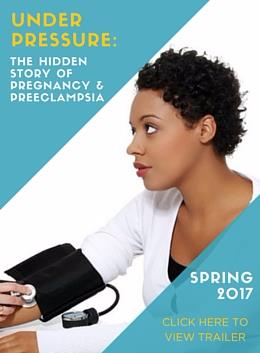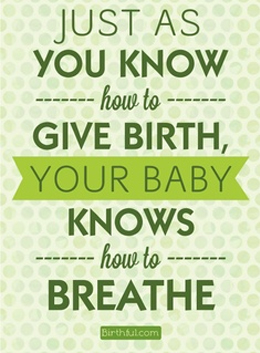Originally Posted on SheKnows.com: February 12, 2016
By Bethany Ramos
Early pregnancy symptoms could confirm the big news before you pee on a stick.
When it comes to getting pregnant, there are the women who swear they knew from the moment of conception, and then there are those who didn’t know they were pregnant until the day they gave birth. Most women, however, lie somewhere between the two. These common signs of early pregnancy could help you figure out what your body is trying to tell you sooner rather than later.
How soon can you find out you’re pregnant?
Most of us are familiar with the fact that a typical pregnancy is 40 weeks. And as the American Pregnancy Association explains it, the first two weeks of your pregnancy don’t even count because you technically aren’t pregnant yet. Weeks one and two of a pregnancy (or pre-pregnancy) include menstruation, followed by preparation for ovulation. During the third week, the body will ovulate and conceive. It isn’t until the fourth week that a very early pregnancy can be confirmed, though a negative pregnancy test is still possible at this time. In weeks four through seven, most women learn they are pregnant, usually after experiencing a few pregnancy symptoms.
If it’s not time to test yet and you simply must know whether or not you have a baby on board, these early pregnancy signs could clue you in. While many of them point to a possible pregnancy, it’s still important to visit your doctor for an official blood test:
1. Bloating/gas
Here’s a fun one to kick off a potential pregnancy — you might have a bun in the oven, or it could be something you ate. Feeling gassy is a possible sign of pregnancy, according to Sherry Ross, M.D., OB-GYN and women’s health expert at Providence Saint John’s Health Center in Santa Monica, California. “Very early in pregnancy, complete chaos with bowel function occurs. Hormonal changes and prenatal vitamins create bowel pandemonium, causing bloating, gas and constipation,” says Ross.
2. Changes in urination
Running to the bathroom nonstop? It could be you’re really hydrated, or maybe your bladder is reacting to body changes caused by a new pregnancy. Dr. Gerardo Bustillo, M.D., OB/GYN at Orange Coast Memorial Medical Center in Fountain Valley, California, explains how common this early pregnancy symptom really is: “Increased frequency of urination without burning or other difficulty urinating is one of the most frequently reported symptoms, occurring in over 50 percent of women in all stages of pregnancy. It reflects the fact that the increased volume of blood during pregnancy is filtered by the kidney and results in the bladder filling more frequently. Also, as the uterus grows, the bladder’s capacity to fill is decreased since the uterus and bladder compete for space in the pelvis.”
3. Dizziness
A little lightheadedness right around the time of your expected period could point to pregnancy because of a rise in the hormone progesterone, says Dr. Kecia Gaither, a maternal fetal medicine specialist with a master’s degree in public health. “This hormone causes the blood vessels to dilate, which in turn lowers the blood pressure. During the early stages of pregnancy, the cardiovascular system undergoes changes, which may lead to an increased heart rate and water retention. It is good to point out that the red blood cells don’t increase as much, which causes a pregnant woman to become anemic — a ‘physiologic anemia.’ This is one of the reasons your health provider will prescribe iron supplementation to offset this naturally occurring process.”
Gaither adds, “It is generally recommended that should a woman experience dizziness, she should immediately lie down and elevate her feet. This allows more blood to flow through the body and brain and may prevent fainting.”
4. Extreme fatigue
Almost every pregnant woman agrees: If you feel like the blood in your veins has been replaced with glue, you very well could be pregnant. But according to Ross, this early sign is easy to miss: “Feeling extremely fatigued or tired is a common early sign of pregnancy that first-time moms may not associate with pregnancy. Most of us feel tired from our everyday life, so it can be confusing to separate normal fatigue from early pregnancy fatigue.”
5. Feeling emotional
PMS or pregnancy? Pregnancy or PMS?This is the question women have been asking themselves for centuries. Feeling a little weepy and weird could mean it’s almost that time of the month, or it could indicate that you’re about to miss your period for another reason altogether. Ross notes early hormonal changes in pregnancy are likely to make a woman feel more emotionally fragile and sensitive. “Anxiety, depression and feeling emotionally vulnerable may be your first sign of pregnancy,” she says.
6. Getting your period
Just when you thought you had it all figured out, Mother Nature goes and throws you yet another curveball. Defying all logic, getting your period can actually mean the opposite of what you would expect — indicating pregnancy, in some cases. “Just around the time you are due for your next period is the same time the embryo implants into the lining of the uterus, causing spotting or light bleeding lasting one to two days and mild uterine cramping,” says Ross. “Implantation bleeding occurs in about 30 percent of pregnancies and is often the first sign of pregnancy.”
7. Missing your period
Finally,finally, something about pregnancy makes sense. Orange Coast Memorial’s Bustillo lists amenorrhea — which simply means a missed period —as a possible early sign of pregnancy. “Whenever a woman in her childbearing years notes she is late by at least a week, she should suspect pregnancy, especially if she has not been using birth control. But even in women who faithfully use contraception, pregnancy is possible because no method is 100 percent effective.” Still, he says, “A missed period may be a difficult symptom to evaluate because some women have irregular and prolonged cycles, and some vaginal bleeding occurs commonly in early normal pregnancy.”
Dr. Jonathan Schaffir, associate professor of obstetrics and gynecology at Ohio State University College of Medicine, confirms, “Obviously, that is the most common sign of pregnancy, but if a woman is used to having irregular or light periods, she may not be aware that she is pregnant.”
8. Nausea
Here’s another familiar one most associated with the early pregnancies portrayed on TV:morning sickness. In reality, this pregnancy-related nausea can occur with or without vomiting and at any time of day. “When nausea and vomiting recur daily, especially with no other signs of intestinal problems such as fever or diarrhea, pregnancy should be suspected,” Bustillo says.
9. Sensitivity to smell or taste
If you suddenly can’t stand the smell of your favorite foods — say, grilled chicken or eggs — something might be amiss. Following right on the heels of nausea is an increased sensitivity to specific scents or food for many women, says Schiffer. “Nausea usually hits a little later, but I have had patients who say their nose gives them the first tipoff to being pregnant, and this might be ignored.”
10. Tender breasts
Similar to the sore boobs you may experience before starting your period, Gaither notes this is one of the easiest early-pregnancy symptoms to ignore. Here’s the subtle distinction between PMS boobs and pre-pregnancy boobs, according to Gaither: “Due to rapid hormonal changes [in pregnancy], the breasts may become swollen, heavier and tender to touch. Many women may notice darkening of the areola. These changes are common and prepare the woman’s body for milk production.”
11. Vaginal discharge
For the many women out there wondering if they are pregnant, there’s a built-in compass that can point you in the right direction. It’s your vagina, and as Ross tells it, the vagina can take on a personality of its own when a woman becomes pregnant, adding one of the most common vaginal changes associated with early pregnancy is “an increase in vaginal secretions, which look milky white in color and more watery in consistency.”
The bottom line
If more than a few subtle signs are pointing to yes, it may be time to schedule a visit with your doctor. In the early days of pregnancy, most women experience this confusion, where they can’t decipher the signals their body is sending them. Gaither says, “Surprised you’re pregnant? Don’t be. A lot of women experience this, as early-pregnancy symptoms can mimic what happens right before and during the monthly period.” She advises, “As with any noticeable changes or symptoms that may be out of the ordinary, it’s best to visit your healthcare provider. Early prenatal care offers the best care for you and your baby.”
Before you go, check out our slideshow below.






